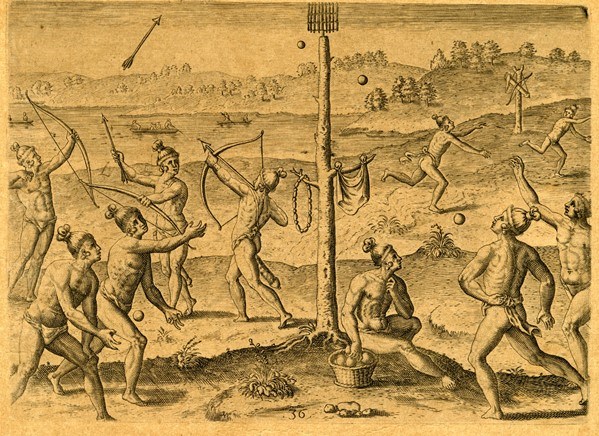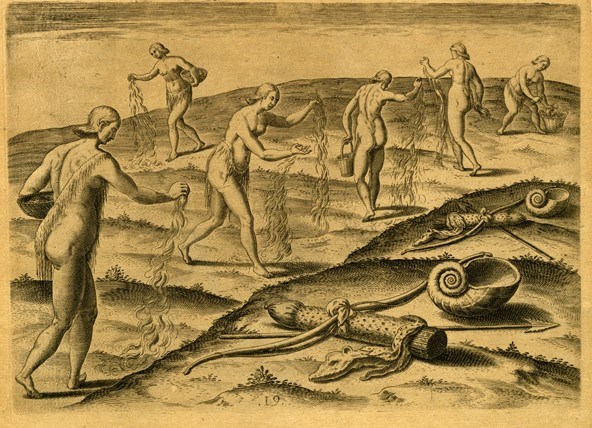
Theodore de Bry MenThe daily tasks of a Timucua man consisted of hunting large animals like deer, making weapons for hunting and fighting, and fighting conflicts. Conflicts between different groups of Timucua were common and mostly fought over status and to capture new wives and slaves. Timucua men played several recreational games, notably archery, running, and a type of ball game with similarities to lacrosse and soccer. The game was played during the summer in honor of the gods of the sun, rain, and thunder so that the harvest would be blessed. 
Theodore de Bry WomenTimucua women spent their days taking care of children, preparing meals, hunting small game, tending to the huts, and making important decisions about agriculture, marriage, and disagreements. They had more daily tasks than men, and worked for longer, but their work was less intensive and dangerous. Generally the Timucua were monogamous, which means that each man only had one wife at a time. Timucua chiefs sometimes had two or three wives at a time. Timucua culture was matrilineal, which meant that people traced their ancestry through their mother’s side. A chief’s heirs were his nephews and nieces through his sister. Once they married, the couple joined the wife’s clan. Several huts in Timucua villages were dedicated to women who had just given birth, as men could not make contact with women during these times. When they were confined to these huts, women could not eat meat or seafood and had to use a different fire. Women’s recreation was limited to ritual dances, as they did not take part in the physical games that the men frequently played. ChildrenWomen looked after children until they were old enough to start learning how to do the tasks typically assigned to their gender, which would be hunting for men and agriculture and domestic activities for women. By age 11 or 12, Timucua children participated in typical adult tasks like pottery making or fishing, and by 15 or 16, the Timucua were considered adult members of society. |
Last updated: September 22, 2022
